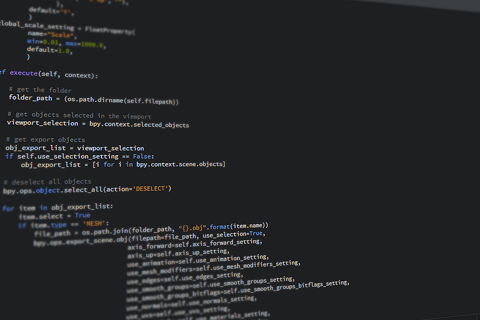Why learn Python!
Why learn Python? 🐍 It's versatile, beginner-friendly, and unlocks exciting career opportunities. Start your Python journey today! 🚀 #LearnPython #Coding
Unlocking Opportunities: Why Learn Python?


The Benefits of Learning Python
1. Beginner-Friendly:
Python's clear and readable syntax makes it an ideal choice for newcomers to programming. Its simplicity allows beginners to focus on problem-solving and logical thinking rather than grappling with complex code.
2. Versatility:
Python can be used in a wide range of applications, including web development, data analysis, artificial intelligence, scientific computing, and more. Its extensive standard library and third-party packages make it easy to tackle various tasks.
3. High Demand:
Python developers are in high demand across industries. Companies like Google, Facebook, Amazon, and NASA use Python extensively. Learning Python can lead to exciting job opportunities and competitive salaries.
4. Rapid Development:
Python's dynamic typing and automatic memory management speed up the development process. It allows you to turn ideas into functioning code quickly, making it a favorite for startups and prototyping.
5. Community and Resources:
Python boasts a vibrant and supportive community. Countless tutorials, forums, and documentation are readily available to assist learners. The Python community emphasizes collaboration and knowledge-sharing.
Job Opportunities
Learning Python opens the door to a plethora of job opportunities. Here are some roles where Python expertise is highly valued:
Software Developer: Python is used in web development (Django, Flask) and for building desktop applications.
Data Scientist: Python's data manipulation libraries (Pandas, NumPy) and visualization tools (Matplotlib, Seaborn) are indispensable in data analysis.
Machine Learning Engineer: Python is the primary language for developing machine learning models using libraries like TensorFlow and PyTorch.
Web Developer: Python powers backend development and is popular for creating web APIs.
DevOps Engineer: Python is often used for automation and configuration management.
Cybersecurity Analyst: Python helps in scripting for security tasks and ethical hacking.
Scientific Researcher: Python is widely used in scientific computing, simulations, and data visualization.


Where to Learn Python
To get started, consider these online resources:
Codecademy: Offers interactive Python courses for beginners.
Coursera and edX: Provide comprehensive Python courses, often in collaboration with universities.
Python.org: The official Python website offers extensive documentation and tutorials.
Books: "Automate the Boring Stuff with Python" by Al Sweigart is an excellent resource for beginners.
Online Coding Platforms: Websites like LeetCode and HackerRank offer Python challenges to improve your coding skills.
YouTube: Channels like Corey Schafer and sentdex offer Python tutorials.
